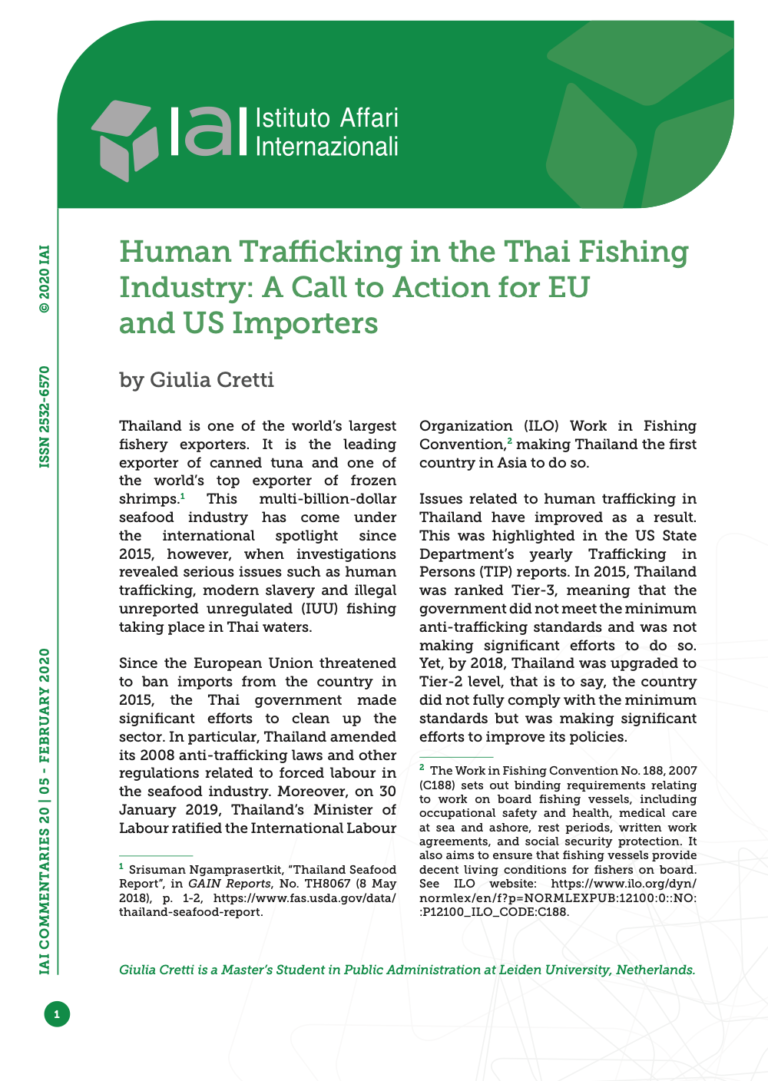Thailand is one of the world’s largest fishery exporters. It is the leading exporter of canned tuna and one of the world’s top exporter of frozen shrimps. This multi-billion-dollar seafood industry has come under the international spotlight since 2015, however, when investigations revealed serious issues such as human trafficking, modern slavery and illegal unreported unregulated (IUU) fishing taking place in Thai waters.
Since the European Union threatened to ban imports from the country in 2015, the Thai government made significant efforts to clean up the sector. In particular, Thailand amended its 2008 anti-trafficking laws and other regulations related to forced labour in the seafood industry. Moreover, on 30 January 2019, Thailand’s Minister of Labour ratified the International Labour Organization (ILO) Work in Fishing Convention, making Thailand the first country in Asia to do so.
Issues related to human trafficking in Thailand have improved as a result. This was highlighted in the US State Department’s yearly Trafficking in Persons (TIP) reports. In 2015, Thailand was ranked Tier-3, meaning that the government did not meet the minimum anti-trafficking standards and was not making significant efforts to do so. Yet, by 2018, Thailand was upgraded to Tier-2 level, that is to say, the country did not fully comply with the minimum standards but was making significant efforts to improve its policies.

